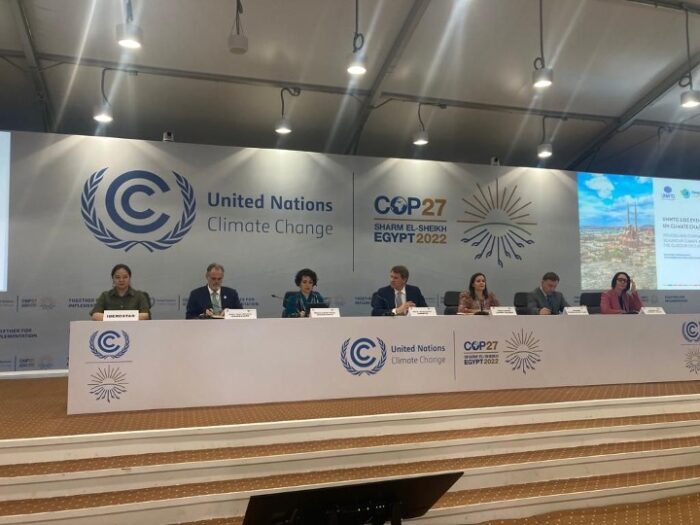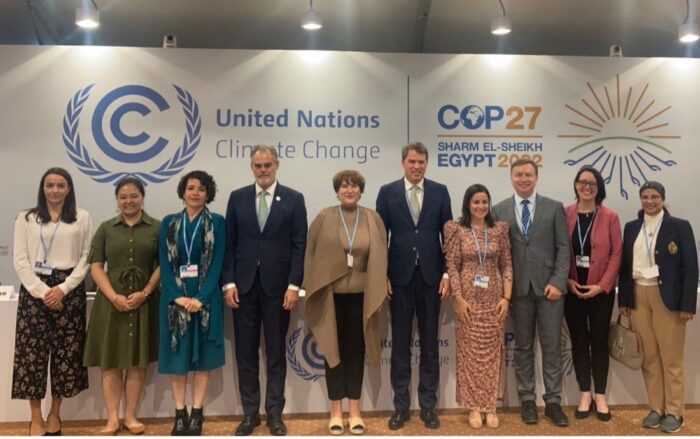The protection of natural capital is key to the development of the tourism sector in the present and future; for this reason, cross-sectoral partnerships are extremely important for promoting climate action and reducing vulnerabilities to the effects of climate change.
The National Association of Environmental Authorities (ANAAE) and the Association of Secretaries of Tourism of Mexico (ASETUR) formed an alliance in February this year. Technical support was provided from the Deutsche Gesellschaft für Internationale Zusammenarbeit (GIZ) through the project “Ecosystem-based adaptation to climate change with the tourism sector” (ADAPTUR). This agreement has enabled the tourism-environment binomial to work on ecosystem-based climate change adaptation (EbA) and biodiversity protection at the subnational level in tourism destinations.
As a result of the alliance, the World Tourism Organization (UNWTO) invited government of Guanajuato representatives María Isabel Ortiz Mantilla, head of the Ministry of Environment and Land Management (SMAOT), and Juan José Álvarez Brunel, head of the Ministry of Tourism (SECTUR GTO), to present the ASETUR-ANAAE alliance and the Emblem Project at the most important conference on climate change, COP 27.

The Emblema Project’s goal is for the tourism, environmental and private sectors to work together to implement ecosystem-based adaptation measures in the Natural Protected Areas (NPAs) of Guanajuato with technical advice from ADAPTUR and Reforestamos México A.C. It aims to restore the soil for its ecosystem services, including the provision of water, basic for the development of tourism activities.
This alliance has become a national and international reference, a new paradigm that promotes climate action alongside activities that support a green and inclusive economic recovery, where the wellbeing of ecosystems and people is at the centre, as they are completely dependent on each other.

